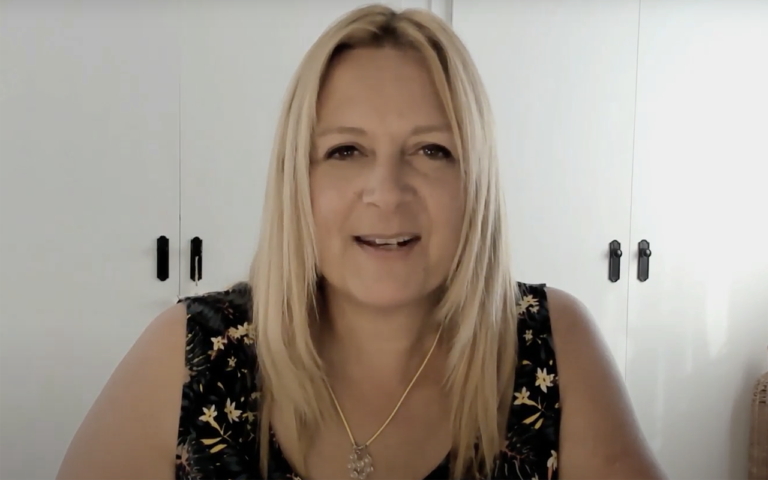

Inflation and banking break record savings
Savings figures have set a record in 2021 due to the pandemic and restrictions. In total, the Bank of Spain calculates that families have saved 943.7 billion euros in deposits, 4.8% more than the previous year. Even so, they are unable to take advantage of it. Inflation and the zero profitability offered by traditional banks could truncate the milestone achieved with so much effort. We talked about this with 11Onze’s executive assistant, Núria Rambla.
Experts warn that, nowadays, filling the savings bag in Spain does not give any return. And there are two main reasons for this. The first is that most families save their income “in traditional products, in the same current account or in cash,” Rambla argues. Therefore, not only are they not making any profit, but they are also losing money! The explanation is simple: in an inflationary context such as the one we are living in, with skyrocketing living costs, inflation is eating away at this hard-saved income.
The second, and more important, reason is that even if households are saving their money in a deposit account, financial institutions are not offering sufficient returns. “The financial sector has cut the interest rates on these deposits by a huge amount, leaving them almost all at 0%, even in long-term products,” Rambla explains. In fact, according to the Bank of Spain itself, this profitability has fallen by 98% in the last ten years.
In other words, for a person to save the same amount as ten years ago, he or she needs to invest 100 times more. Thus, if a decade ago the banks paid an average of 500 euros for every 10,000 euros invested in a deposit per year, today we only get five. The reason, says Nuria Rambla, lies in the interest rates set by the European Central Bank (ECB), which encourage borrowing, not saving.
“The ECB charges interest to traditional banks for holding excess money, it charges them negative interest, in other words, they even have to pay the ECB to hold these deposits for them. That’s why traditional banks can’t offer good returns to individuals. And for corporations or larger companies, if you have a higher balance for more than a certain number of days, they start charging you,” Rambla explains.

“The financial sector has cut interest rates on deposits a lot, leaving them almost all at 0%, even in long-term products.”
Purchasing power plunges in a decade
Just a decade ago, the average yield offered by deposits was 2.74%. In 2008 it even exceeded 5%. By contrast, in September this year, the average was 0.05%. A real blow to savers. And that is if customers are able to find a financial product that offers them a return, because recently some traditional banks in Spain have already started to market deposits with a zero return. “There are very few that offer almost 1%, but they are an exception,” Rambla argues.
So what is the solution? “To maintain purchasing power, you don’t have to leave your money idle. You have to invest,” the executive assistant at 11Onze argues. That is why, in Spain, many savers are betting on diversifying their savings and investing in investment funds, in ETFs or investment packages that are easier to manage, and even in cryptocurrencies or precious materials such as gold or silver. However, all these products always involve risk. That’s why 11Onze will soon be announcing new products that can help savers, and we’ll keep you posted!
If you want to wash your clothes without polluting the planet, 11Onze Recommends Natulim.





Esperarem, doncs, les noves propostes d’11onze
Doncs sí, veurem tot com anirà avançant… Moltes gràcies pel teu comentari, Santiago!!!
Merci. Eperarem expectants els nous productes d’estalvi!
Gràcies, Jordi, per confiar en 11Onze!
Bravo!
Gràcies, Joan! Ens veiem a La Plaça.
A veure què ens podeu oferir més enllà de l’or físic, el mínim de 3000€, a mi m’ho posa difícil
Francesc, estigues atent a La Plaça que és on publicarem les properes novetats. Gràcies pel teu comentari
Gran mostra de la tendència actual. Aixi resumit veus la deriva negativa del sistema. Gràcies.
Gràcies a tu, Pere
👏
Gràcies, Daniela!!!
Però per a assegurar l’èxit en aquests productes d’estalvi que l’11onze ha de llançar, és bàsic que aquests nous productes puguin tenir més d’1 titular. Sinó, crec que molta gent no hi entrarà, perquè seran imports importants que ara estan en una altra entitat amb més d’1 titular
Gràcies pel teu comentari Josep! Ens veiem per La Plaça
Gràcies per l’article
Gràcies, Manuel. Ens veiem a La Plaça.
Gràcies Núria
Moltes gràcies, Laura!!!
Esperant poder invertir i sobre tot saber gestionar i prendre consciencia del que està passant i si cal a tots aquells que puguem explicar-ho
Aviat podrem fer-ho, i esperem que la pèrdua de valor dels nostres estalvis sigui recuperable. Moltes gràcies pel teu comentari, Alícia!!!
Si no ho veus en xifres gairebé ni t´adones de la deriva dels darrers 10 anys. Es diu: els bancs no donen res, però tret dels grans inversos gairebé professionals que sí que ho saben, no es capta la pèrdua. S’ està posant molt l’atenció en el mal servei de la banca tradicional i poc en la pèrdua de valor dels diners que s’hi tenen dipositats. Potser perquè s’excusen en la política del BCE. Si 11onze es capaç de donar solucions per petits i mitjans inversors a mig termini, és un gol per l’escaire. Gràcies per l’ anàlisi.
Doncs sí, Mercè, és el que hem de poder i saber fer, donar un bon servei als nostres clients, que en principi són i seran, els Catalans. Moltes gràcies pel teu comentari, Mercè!!!
Estem esperant en candeletes aquests nous productes.
Sí, de mica en mica aniran sortint per donar més i millor contingut al Canut. Moltes gràcies pel teu comentari, Jordi!!!
Ok 👍
Gràcies, Josep!!!